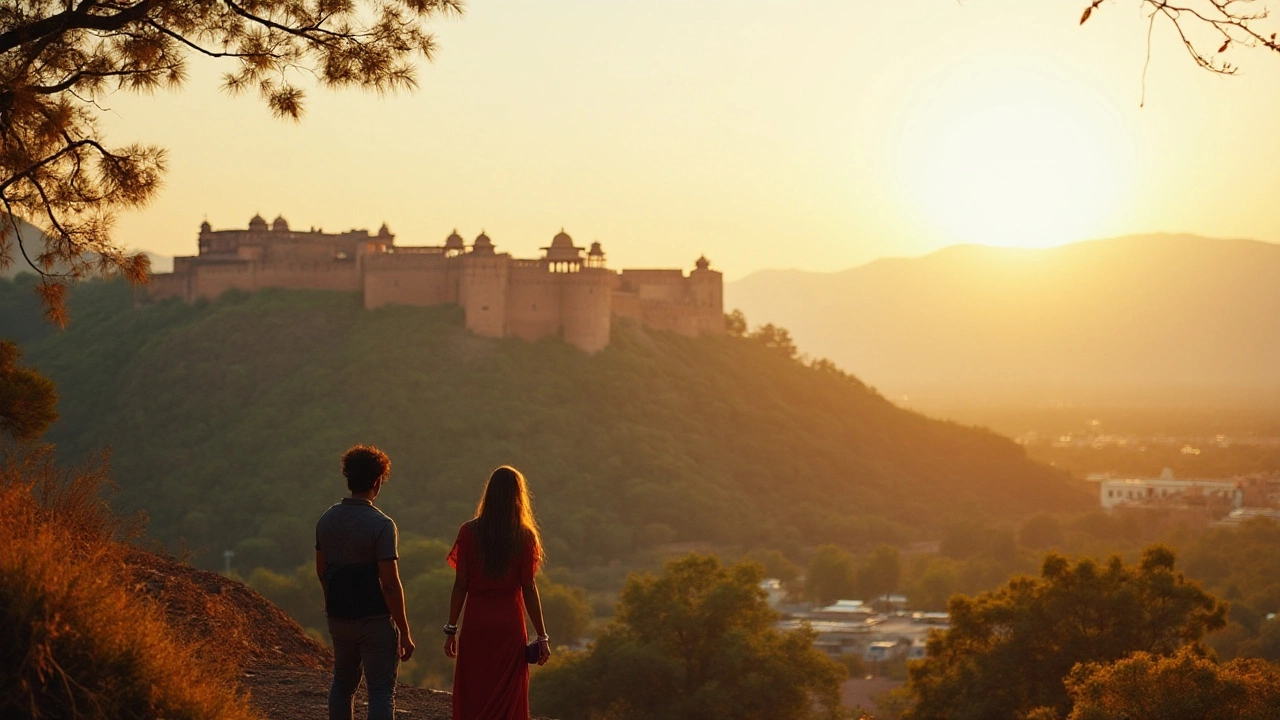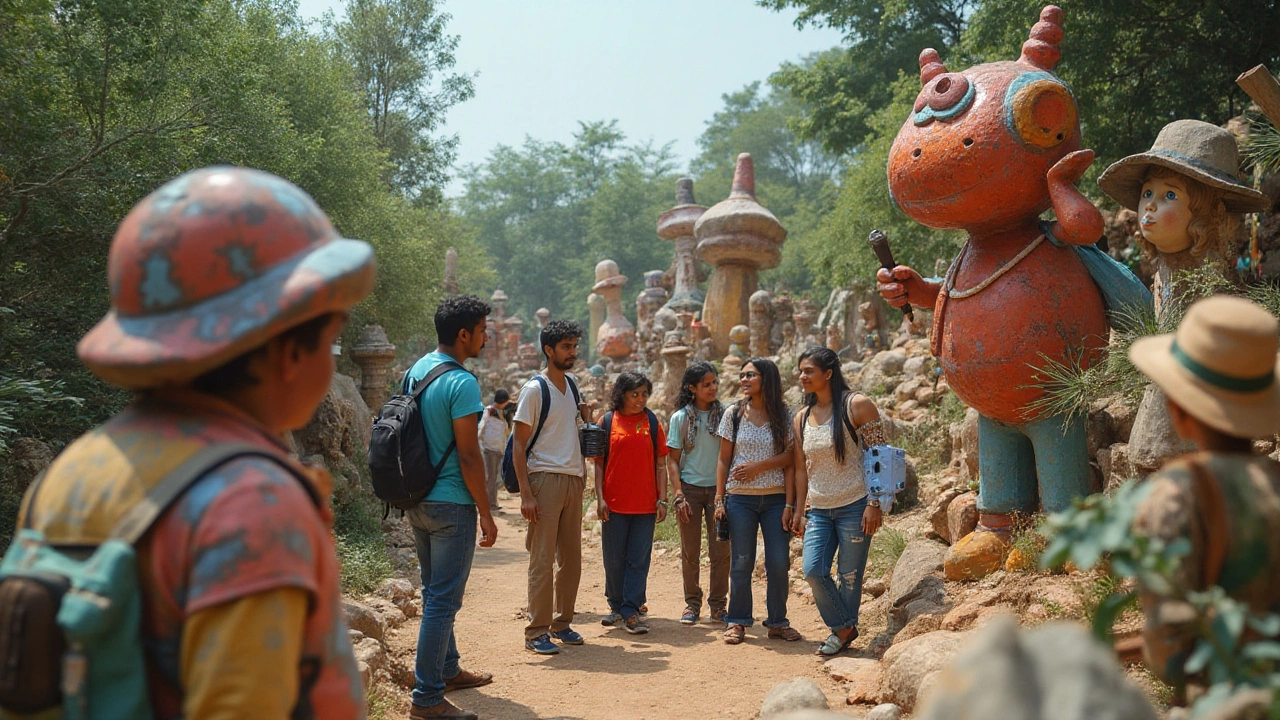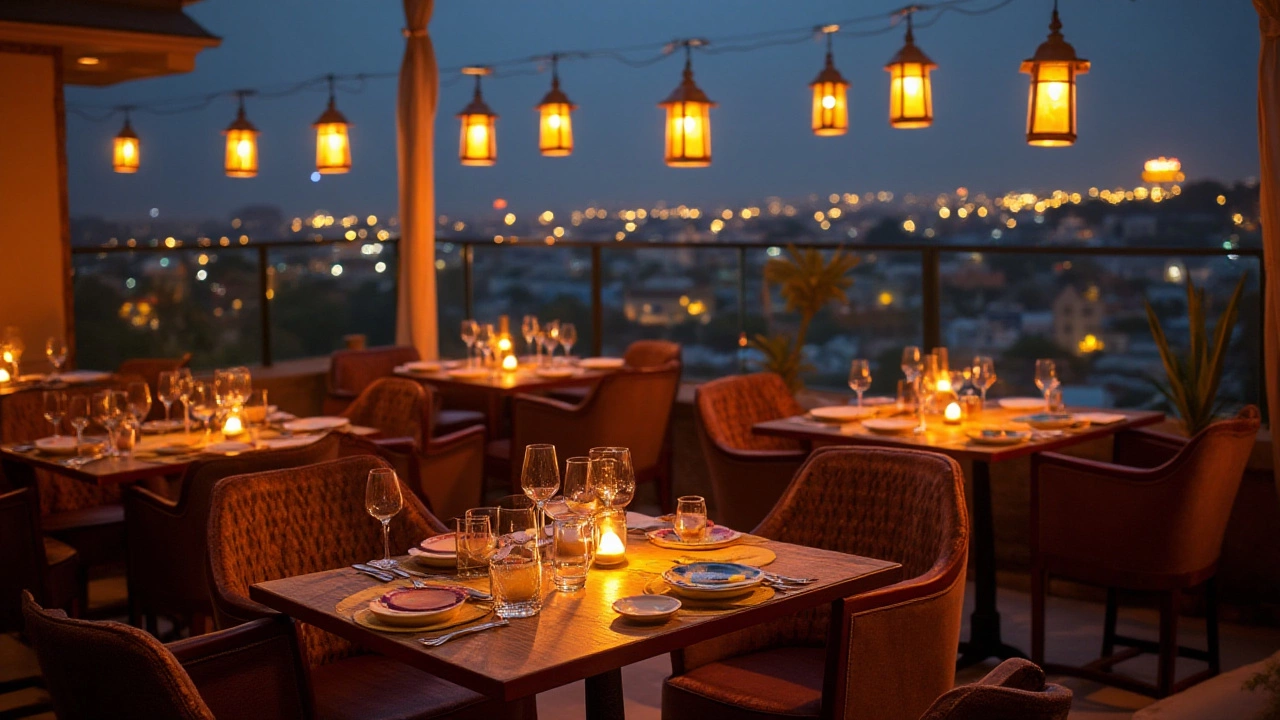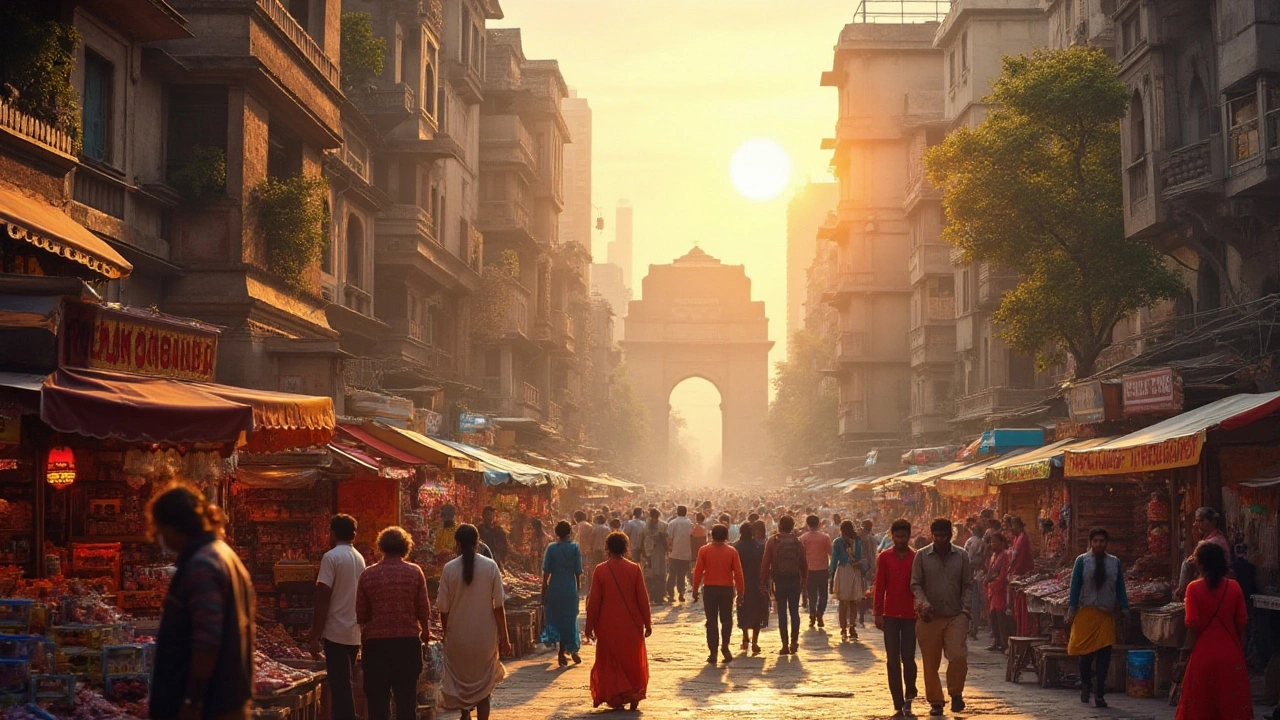Embarking on an adventure to North India opens up a world filled with striking contrasts and vibrant experiences. The region is home to some of the most fascinating cities that cater to both traditional heritage and contemporary comforts, making it a hotspot for expatriates.
North India's cities, with their welcoming nature and unique characteristics, offer a perfect backdrop for those looking to immerse themselves in Indian culture while still enjoying the convenience of modern amenities. From the bustling streets of Delhi to the regal charm of Jaipur and the well-planned urban landscape of Chandigarh, each city has its own distinct appeal for foreign residents.
Finding the right city as a foreigner can greatly enhance your experience, providing not only access to a rich cultural tapestry but also a supportive community of fellow travelers. Join us as we delve into some of the top cities in North India that are particularly suited for expatriates, each with its own flavor and allure.
- Delhi: A Mix of Tradition and Modernity
- Jaipur: The Pink City's Expat Life
- Chandigarh: A Planned Urban Haven
- Tips for Living in North Indian Cities
Delhi: A Mix of Tradition and Modernity
Delhi, India's vibrant capital, represents a captivating fusion of the ancient and the ultra-modern. This city charms visitors with its remarkable ability to juggle two distinct eras effortlessly. On the one hand, the city narrates tales from the past, hosting awe-inspiring historical sites such as the Red Fort, Humayun’s Tomb, and Qutub Minar. Wander through Old Delhi's streets, and you'll find bustling markets brimming with spices, fabrics, and a mesmerizing array of culinary delights. As you soak in these sights and sounds, you'll realize how deeply rooted traditions continue to play a part in daily life.
As dynamic as it is historic, Delhi is also a thriving modern metropolis with its skyscrapers, chic locales, and cutting-edge infrastructure. There's South Delhi's Hauz Khas Village, famed for its trendy cafes, art galleries, and boutiques, offering a taste of Delhi’s modern artistic flair. The city is a melting pot of cultures, drawing artists, entrepreneurs, students, and professionals from around the globe. This diversity promotes a rich tapestry of languages, cuisines, and festivals, which makes living in Delhi both exciting and engaging for foreigners.
The quality of life in Delhi for expats has improved significantly over the years, aided by its well-established healthcare and educational facilities. International schools offer multiple curricula, catering to families from various parts of the world. The healthcare system, too, is robust, with numerous hospitals providing world-class services, ensuring the comfort and safety of the foreign community. With its metro system—one of the largest and most efficient in the world—commuting across the sprawling city becomes a hassle-free affair, saving time and providing a deeper insight into local life.
During a recent interview, a long-time expat described Delhi as "a city where every day offers something new," capturing the essence of Delhi’s unpredictability and charm. Many foreign residents also find solace in expatriate-friendly neighborhoods like Vasant Vihar and Defence Colony, where vibrant communities often hold gatherings, reinforcing social connections. Such bonds offer essential support networks, particularly valuable for newcomers adjusting to life in India.
North India tourism attractions in Delhi are numerous, making it a perfect launchpad for those wanting to explore nearby wonders. With its proximity to the majestic Himalayas, alluring Jaipur, or the iconic Taj Mahal just a short drive away, Delhi serves not just as a home but a gateway to the many marvels of India. For those looking to experience the very heart of contemporary India while still engaging with its rich history, Delhi stands as an unmissable destination—in every way, truly a mix of tradition and modernity.

Jaipur: The Pink City's Expat Life
Jaipur, often called the Pink City, stands as a gem in the heart of North India and captivates expats with its blend of historical grandeur and modern conveniences. This city is renowned for its splendid palaces, vibrant markets, and a rich tapestry of stories that blend centuries of tradition with the ever-evolving cultural dynamics of India. For expats, Jaipur offers a welcoming atmosphere that combines the charms of a small city with the facilities of urban life. As a center for artisans and entrepreneurs, it provides an opportunity for expatriates not only to explore but to engage deeply with the local culture.
The way of life in Jaipur is uniquely enticing to foreigners. Walking through the streets of this historical city, one is enveloped in the sights and sounds that are both exotic and comforting. The architecture alone tells a thousand tales—from the intricate carvings of the Hawa Mahal to the symmetrical beauty of Jantar Mantar. Expats often find solace in the serenity of these spaces that speak of an era gone by while continuing to challenge modern architectural sensibilities. This fusion of past and present is part of what makes living in Jaipur a continuous journey of discovery.
Adapting to life in Jaipur can be both an exciting and rewarding experience for those who embrace it. The city’s culinary heritage is a treat for the senses, offering traditional Rajasthani delicacies like dal baati churma and ghevar that are a must-try. An expat living in Jaipur once said,
"Jaipur’s food is more than a meal; it’s a celebration of life in each bite."Embracing the local cuisine is just one aspect of integration; learning a few phrases in Hindi can greatly enhance social interactions and cultural understanding, making day-to-day life smoother and more fulfilling.
The expat community in Jaipur is surprisingly robust, comprising individuals from various backgrounds who have found a common bond in their love for the city. The expat clubs and social gatherings provide a support network and a space to share experiences, easing the transition for newcomers. Many expats in Jaipur are involved in initiatives related to education and heritage conservation, leveraging their skills and passion to contribute back to the community. These activities not only enrich lives but also strengthen ties with the locals, creating a vibrant mix of cultures.
Cost of Living and Accommodation
The cost of living in Jaipur is relatively lower compared to other major Indian cities like Delhi or Mumbai, making it attractive for expats looking for affordability without compromising on quality of life. The city offers a variety of accommodation options ranging from traditional Haveli-style residences to modern apartments tailored to cater to diverse preferences and budgets. Exploring these options can lead to finding a perfect place that feels like home, set amidst breathtaking landscapes and bustling bazaars.
The internet and communication infrastructure is steadily improving, allowing expats to remain connected with the wider world and facilitating remote work opportunities. Also noteworthy is the accessibility to diverse travel options, with Jaipur's central location serving as an excellent base for exploring the wonders of North India. From the Thar Desert to nearby hill stations, there are adventures aplenty awaiting discovery.
In conclusion, Jaipur offers a unique blend of deep-rooted cultural heritage and modern-day conveniences, making it a fascinating place for expats to live and thrive. The warmth of its people, the upside of its traditions, and the easy-going lifestyle all work together to make Jaipur an inviting destination for foreigners seeking a vibrant and dynamic city in India.

Chandigarh: A Planned Urban Haven
Chandigarh stands out as a pinnacle of organization among India's vibrant chaos, designed by the famous Swiss-French architect Le Corbusier. This iconic city is not only a capital for two states, Punjab and Haryana but a triumph of urban planning and modernist architecture. Known for its structured layout, Chandigarh is a delightful experience for those who appreciate order and style. The city offers a respite from the typically bustling pace seen in other parts of India, making it an ideal place for foreigners seeking a bit more calm in their experience.
One of the standout features of Chandigarh is its emphasis on green spaces. Sukhna Lake and Rock Garden are notable spots where residents and visitors alike can engage with nature. It's a city that's designed to be navigated effortlessly with wide roads, roundabouts, and dedicated green belts that weave a network of tranquility throughout the city. Such characteristics make it comfortable for expatriates to live and work here. According to a BBC report, Chandigarh has earned a reputation as India's happiest city, attributed largely to its environment and high standard of living.
"Chandigarh is a realization of security without barracks and prosperity through well-rounded development," said Le Corbusier in one of his assessments about the city. This idea reflects the core principle on which Chandigarh operates, balancing growth with sustainability.Expats often find that integrating into the life of Chandigarh is relatively hassle-free thanks to a substantial community of fellow expatriates. There are various cultural clubs and social meetups regularly held to encourage mingling and cultural exchange, fostering a welcoming environment for newcomers. Language, usually a barrier elsewhere, becomes more manageable here since English is widely spoken and used in official communications.
For those interested in education and career opportunities, Chandigarh is flush with institutions of repute like the Punjab University, enhanced by a thriving IT sector known as the IT Park. The city provides a mix of traditional Indian culture with modern-day conveniences, offering a truly unique lifestyle among Indian cities. A table of demographics and amenities might reveal:
| Demographic | Details |
|---|---|
| Population | 1.1 million |
| Language | Hindi, Punjabi, English |
| Main Industries | Education, IT, Retail |

Tips for Living in North Indian Cities
Living in North India as a foreigner presents an exciting yet challenging opportunity to immerse yourself in vibrant cultures while navigating daily life. North India tourism thrives on its diversity, where each city offers different facets of rich traditions and contemporary dynamics. To make the most of your stay, it's essential to adapt to the local customs, which can sometimes be as colorful as the cities themselves. A respectful understanding of local traditions not only eases your integration but also opens doors to lasting friendships. It’s always a good practice to greet locals with a warm "Namaste," showing your willingness to embrace the culture. Engaging in community events or festivals can also enrich your experience.
One of the key aspects of settling in is understanding the pace of life that North Indian cities boast. Cities like Delhi and Jaipur often have a bustling ambiance that might take some time to get used to. Having patience and a sense of humor helps when dealing with traffic or busy markets. Local markets are where you’ll find everything from spices to textiles, making it a great place to practice haggling—an expected art in daily transactions. It’s advisable to learn basic Hindi phrases as they can be extremely helpful; being able to communicate in the local language is often appreciated by residents.
Navigating public transport is another critical factor. While cities like Delhi offer a comprehensive metro system that is efficient and affordable, understanding the local routes for buses and auto-rickshaws can make commuting much simpler. Getting a local SIM card is another first step that can make life significantly easier, given the reliance on mobile apps for transport, food delivery, and other services. Be sure always to carry bottled water and sunscreen as North India can get quite hot.
Security is always a consideration for foreigners. While North India is generally safe, taking standard precautions is wise, as in any major city. Avoid deserted areas at night and always keep a close eye on personal belongings in crowded places. It's beneficial to register with your home country's embassy and keep their contact details handy. Joining expatriate groups can provide a supportive network, offering insights and advice for a smoother transition.
"Experience is not what happens to you; it's what you do with what happens to you." – Aldous HuxleyRemember, embracing every moment and seeing challenges as opportunities to learn will enhance your experience.
Healthcare facilities in North Indian cities are robust, with numerous hospitals and clinics offering quality care. It's prudent to have health insurance that covers medical expenses abroad. Simple preventive measures like vaccinations, staying hydrated, and eating well-cooked street food can go a long way. Understanding the climate of the city you're in can also help in making appropriate lifestyle changes. The summer months can be intense, so dressing comfortably in cotton clothing and staying indoors during peak heat hours is advisable.
Lastly, for those concerned about the environmental impact, North Indian cities are also catching up with eco-friendly initiatives. From cycling paths to solar-powered public amenities, make it a point to explore these options. Getting involved with local environmental groups can be a gratifying way to blend personal values with community engagement. Whether your interest lies in sustainability, culture, or simply discovering new realms, living in Indian cities as a foreigner can be a richly rewarding experience.
